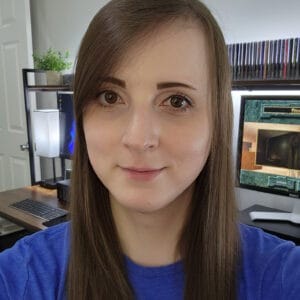A Message from Blair Durkee, Associate Director of Gaming at GLAAD

When GLAAD was founded in 1985, our pressing mandate was to stem the tide of harmful and defamatory narratives being spread about LGBTQ people in the media. Since that time, the LGBTQ community has made incredible strides in both visibility and acceptance, and media—while still lagging behind—has similarly come a long way. This is especially true for the video game industry, where games like Dragon Age: Inquisition and The Last of Us Part II have illustrated a growing interest from studios and developers to meaningfully represent LGBTQ people. To that end, GLAAD’s enduring mission to hold the media accountable is embodied today by our work alongside creators to help them tell LGBTQ stories accurately and authentically.
In 2018, we founded the GLAAD Media Institute as a resource for media industries, backed by our decades of institutional knowledge and expertise. Through training, research, and consultation, we help creators navigate the complexities of authentic representation and ensure that LGBTQ content is well-received by audiences. We’re gamers ourselves, so our advocacy is always driven by a passion to make games more enticing, engaging, and fun to play for everyone.
Our work can be seen in games like Tell Me Why, where we collaborated with Xbox Game Studios and DON’T NOD to produce the first game from a major publisher featuring a playable transgender protagonist. We also partnered with Electronic Arts and Respawn Entertainment to introduce Catalyst, a trans woman character, into the popular online shooter game Apex Legends.
We believe that LGBTQ inclusion benefits both the video game industry and community. As this report shows, the presence of LGBTQ characters or storylines doesn’t meaningfully deter non-LGBTQ people from buying or playing games, but it makes a huge difference to LGBTQ gamers. Nearly 7 in 10 LGBTQ gamers wish there were more prominent LGBTQ storylines in games. Developers have the opportunity to meet a critical need for our community while also expanding their audience.
Despite the significant progress we’ve seen, gaming remains woefully behind other forms of entertainment media when it comes to representation. Many creators want to work toward a better future but feel like they lack the knowledge and expertise. The GLAAD Media Institute exists to fill that gap. To find out more information and work with us, visit glaad.org/contact.












